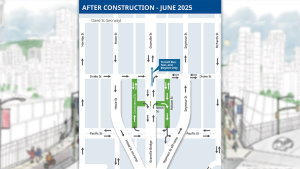The Construction Association of Rural Manitoba (CARM) is welcoming the introduction of prompt payment legislation by the province as it will ensure contractors and subcontractors are paid in a timely manner.
Executive director Shawn Wood says the board of the organization and its members fully support and appreciate the efforts made by the provincial government for deciding to move Bill 28 forward.
“This is the stepping stone needed to allow additional protection for our small- and medium-sized construction enterprises to operate, and is critical for cash-flow planning.”
The legislation, known as the Prompt Payment for Construction Act, was announced recently by Labour, Consumer Protection and Government Services Minister Reg Helwer. It is aimed at ensuring timely payment of construction costs to contractors and subcontractors and reducing project slowdowns.
Manitoba is the latest western province to introduce prompt payment legislation. Such measures are in effect in Alberta and Saskatchewan.
In B.C., the government has established an industry working group to accelerate progress on prompt payment legislation. Ontario has prompt payment legislation.
CARM, which represents 170 companies in southwest Manitoba, has been engaged on the prompt payment file for the better part of five years. The legislation is important to the organization because the province has a lot of smaller contractors with limited cash flow who are especially affected when payments are delayed as it makes it difficult for them to bid on other projects.
“It’s been an issue with the construction industry across the board,” explains Wood. “If an owner doesn’t pay a general contractor and the general contractor either doesn’t have the money to pay his subs or is paying out of pocket then that carries on and you add to that the ability to bid on other work.
“If it’s a small company, that’s the difference between them working or going bankrupt or closing their doors.”
Bigger construction companies are also affected when payments are delayed but they have more flexibility, revenue and collateral when it comes to borrowing money to tide them over, notes Wood.
“They can maintain that a little longer than the plumbing shop with four people. Smaller companies just don’t have as much collateral to continue going and stretch themselves out.”
The construction industry accounts for about eight per cent of Manitoba employment and is a significant contributor to the economy.
“It’s important for people to understand that the construction industry is a big part of the GDP, not just in Manitoba but across all provinces and the nation. If the industry is not working and not building that affects the overall economic recovery for Canada and our province. This legislation will help keep those projects going forward in a timely manner and if people are working and spending money in the economy it will get us to where we need to be.”
The western provinces have agreements where they work together and just knowing that they all have the same prompt payment rules in places also makes for a better business climate, says Wood.
“If we can align with the other provinces, it just makes things so much easier within the industry crossing provincial borders and that sort of thing because, let’s face it, construction doesn’t happen just in our province. Our members work in Saskatchewan and Ontario, so to have something that kind of lines up amongst the provinces will definitely benefit Manitoba as a whole.”
Helwer, meanwhile, says the legislation proposes a remedy for late payments while not affecting existing lien and trust statutory remedies, and avoids the onerous task of amending the existing Builders Lien Act.
Although delayed payments are not unique to the construction industry, the minister noted the sector is especially vulnerable to negative impacts of delayed payments due to its tiered payment structure. At each tier of the construction contract chain, contractors and subcontractors must finance their payrolls, materials and other expenses before they are paid. Delayed payments at multiple tiers can compound severe financial consequences for subcontractors.
“The optimal window for major construction is often limited by seasonal challenges, so ensuring greater efficiency in project remuneration is important to the flow of work performed, benefiting contractors and clients,” noted Helwer. “This legislation will specify a timely payment structure based on the progress of the work, the achievement of certain project milestones and project conclusion.”
Bill 28 was developed in response to concerns expressed by construction industry stakeholders, including the Manitoba Prompt Payment Coalition (MBPP) and its member associations. While existing laws help secure claimants’ rights to payments and ensure payments are kept within the construction pyramid and flow appropriately, there is currently no remedy for a late payment.
MBPP co-chair Ramona Coey says stakeholders hope to see Bill 28 move through the legislature quickly to join the growing number of prompt payment regimes enacted across Canada, as “delinquent payments hurt the province’s economy and jeopardize employment and financial security for thousands of workers.”











We absolutely DO NOT need more worthless government oversight. Contractors can run their own risks considering they have losses built into their prices and should also trust the people they are working for, period. Personally I’d like the dumb reporter to name one thing the “government” has ever done to boost its people